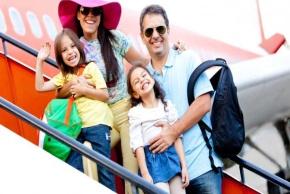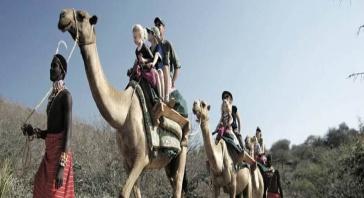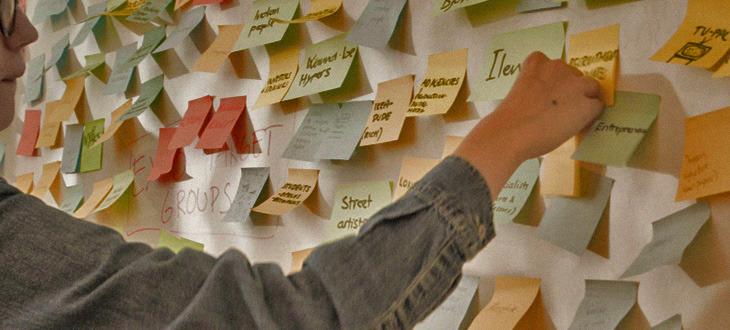|
8 min
|   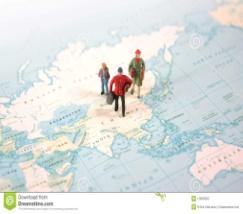 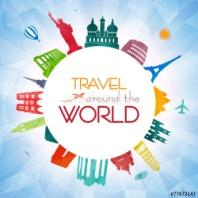
roadun hte olwrd T: At our lesson you will talk about travelling, do some interesting tasks. So let’s begin our lesson. (W) Warm-up. Watching the video about travelling (I) Speaking. Now, children watch and listen to the video and be ready to answer the questions by the technique “Joker” and use the map of the world to show the cities and countries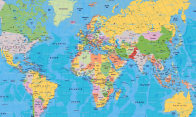 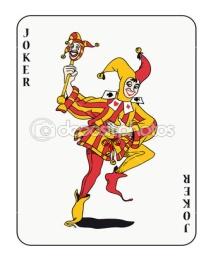
One student will ask a question, the other student will answer the given question, asks a question and gives the card to another student who answers the question and gives the card to another person. And so you will go on You can use these questions. Do you like travelling? What kinds of travelling do you know? How can people travel? Where you can travel during your holidays? What countries do you want to travel? Could you offer me something interesting? |
https://www.youtube.com/channel/UCxZY5U61e2T5KqIMnEYmUxQ
|
| Middle
5 min
10 min
4 min
2 min
End 2 min | (G) While -reading. For the first all three groups will read the text and then you’ll do different activities. (Reading) Travelling Modern life is impossible without travelling.Millions of people all over the world spend their holidays travelling. Why do people travel? First of all, travelling is seeing the world and getting new experiences. It's always interesting to discover new things, different ways of life, to meet different people, to try different food, to listen to different musical rhythms. Second reason to travel is to meet people and experience new cultures. When I travel I always try to find some friends from other countries. Then we keep in touch in social networks, talking about our countries, our interests, which also helps me to practice my English – another advantage of travelling.Thousands of people travel every day either on business or for pleasure. Travelling is also a chance to understand yourself in a better way. You can see the places and think where you want to live and work in future. There are some facts about travelling. For example, traveling can help to improve your problem - solving skills. Taking a vacation can lower your risk of heart disease. Studies show that money spent on travel makes you happier than money spent on material goods. People travel by train, by plane, by boat and by car. Travelling by train is slower than by plane, but it has its advantages. Travelling by air is the fastest and the most convenient way, but it is the most expensive too. All means of travel have their advantages and disadvantages. When we travel and go to visit different nations, there are a lot of problems which we have to face and come across. For instance, losing your luggage, feeling homesick, bad weather, losing the path, missing passport or money. The moral of travel is that you will get some experiences and get more information and knowledge about it.
(G) The first group– Method “Agree or Disagree” Writing. Read and answer the questions, discussing them in the group. If you agree put “+” and if you don’t agree put “—“
Modern life is impossible without travelling. Thousands of people travel every day either on business or for pleasure. Travelling by air is the slowest and the most convenient way, but it is the cheapest too. Travelling by train is slower than by plane, but it has its advantages. You can see much more interesting places of the country you are not travelling through. Modern trains have not very comfortable seats. Speed, comfort and safety are the main advantages of trains and planes. Travelling by sea is not very popular. Studies show that money spent on travel makes you sadder than money spent on material goods. Large ships and small river boats can visit foreign countries and different places of interest within their own country. Descriptor A learner
(G) The second group – Strategy “Fishbone” Speaking. Using the strategy “Fishbone” find out and say about the reasons, facts, arguments and problems according to the text. Conclusion
Facts and arguments
 Reasons 
 


Problems
Descriptor A learner work in a group for producing ideas and try to say their own opinion evolve arguments, reasons, facts and make a conclusion discussing the text (G) The 3rd group - Method “Clever Owl”  You’ll do the given instructions according to the text. Give the main idea and try to draw it in illustrative image Point the known and unknown facts from the text The main wisdom of life in the text Find the main information which you don’t agree. Say the main idea of the text in one word. Descriptor A learner
(I) Post –reading. Reading. The 1st group: Write at least three places where you can travel. The 2nd group: Write advantages and disadvantages of travelling The 3rd group: Write three reasons why travelling is useful. Descriptor A learner Feedback. Method “Islands” On a large sheet of paper is drawn some kinds of emotional "islands": happy, clever, positive, interested, angry, joy, tired, clever, positive, depressed, sad. Students go to the map and put their boats in any area of the map which they have the emotional and sensual mood during the lesson
tired joy
happy

 sad
interested clever
angry
positive
depressed
Evaluation Final Self-Assessment Method “Objective traffic lights” What do you think about the tasks of the lesson? Draw the colours of the traffic lights.
| Name | red - I don’t think I understand this | yellow = I understood this, but I feel I need to finalize | green = I'm sure I achieved this
| | Can ask and answer the questions by the technique “Joker” |
|
|
| | Can work in a group by the method “Dialogue on the stickers” |
|
|
| | Answer the question: Where would you travel when you have your summer holidays? |
|
|
| | Work in pairs/group for producing ideas and try to say my own opinion |
|
|
| | Can do mini-test, choose the right variant |
|
|
|
|
Internet resources
Planwallpaper.com
A collection of tasks for FA
|


